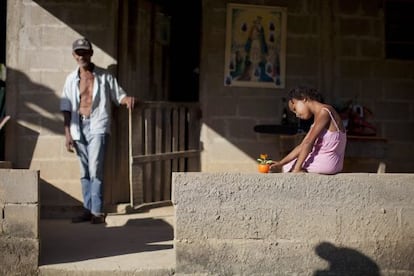Brazil frees nearly 3,000 workers from slave-like conditions
Afro-Brazilians still face discrimination due to longstanding social deprivation


Brazil last year emancipated nearly 3,000 people who were living and working under slave-like conditions, government officials announced Monday.
The figure released by the Work and Employment Ministry (MTE) is 14 percent higher than the number of people who were rescued from similar circumstances in 2011.
On May 13, 1888, Brazil became the last country in the world to abolish slavery. The government held special ceremonies on Monday to recognize the 125th anniversary of emancipation by inviting the grandchildren of the country’s last slaves to take part in public observances across the country.
According to prosecutors at the MTE, 2,849 workers were taken from “near slave-like” conditions across Brazil. They were found not only in farms and ranches where traditionally agriculture workers are employed under harsh circumstances, but also in the construction and manufacturing industries. In 255 inspections, prosecutors looked at the work conditions of 30,793 employees. Para state had the highest number of labor violations with 563 workers found to be working under inhumane conditions.
When an Afro-Brazilian manages to obtain an important position, not only is it accepted, but it is also applauded
The government has set aside some $4.5 million to compensate the 2,849 freed workers.
In Brazil, prejudice against Afro-Brazilians does not stem from racial bias but instead has deep-rooted social origins. After emancipation, former slaves were not offered a state-paid education and the welfare of many was neglected to such a point that they pined for a return to their former status. Today, when an Afro-Brazilian manages to obtain an important position, such as the current Supreme Court Chief Justice Joaquim Barbosa, not only is it accepted, but it is also applauded.
Brazilians of color are the products of those slaves who were never educated and had children and grandchildren who still suffer from social discrimination.
But recent discoveries of judicial records in Rio de Janeiro from the slavery period show that many Afro-Brazilians did not merely sit back and take abuse from their masters. More than 400 complaints were filed against slave owners in the Rio national court for various violations, the records show.
Tu suscripción se está usando en otro dispositivo
¿Quieres añadir otro usuario a tu suscripción?
Si continúas leyendo en este dispositivo, no se podrá leer en el otro.
FlechaTu suscripción se está usando en otro dispositivo y solo puedes acceder a EL PAÍS desde un dispositivo a la vez.
Si quieres compartir tu cuenta, cambia tu suscripción a la modalidad Premium, así podrás añadir otro usuario. Cada uno accederá con su propia cuenta de email, lo que os permitirá personalizar vuestra experiencia en EL PAÍS.
¿Tienes una suscripción de empresa? Accede aquí para contratar más cuentas.
En el caso de no saber quién está usando tu cuenta, te recomendamos cambiar tu contraseña aquí.
Si decides continuar compartiendo tu cuenta, este mensaje se mostrará en tu dispositivo y en el de la otra persona que está usando tu cuenta de forma indefinida, afectando a tu experiencia de lectura. Puedes consultar aquí los términos y condiciones de la suscripción digital.








































